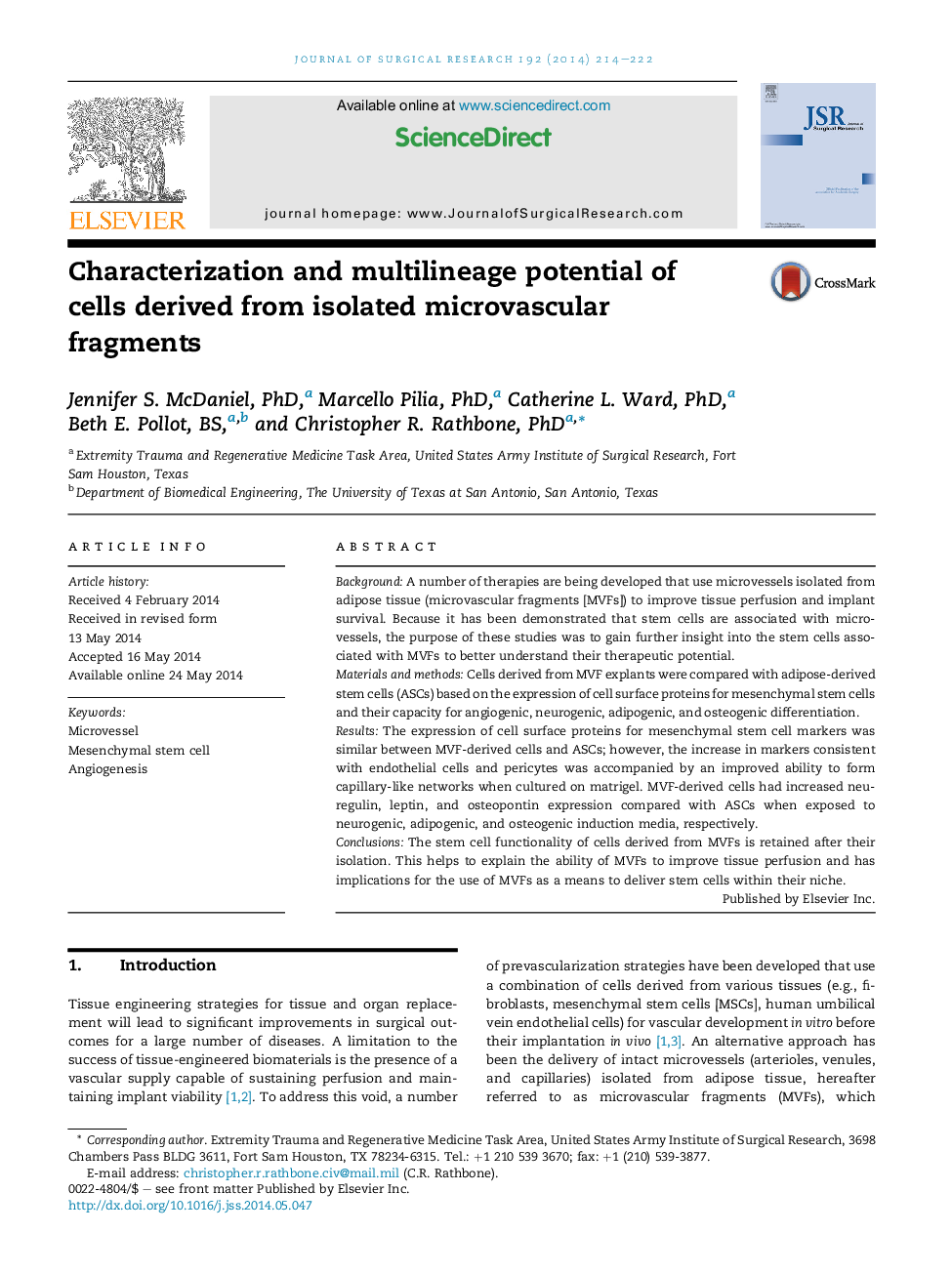| Article ID | Journal | Published Year | Pages | File Type |
|---|---|---|---|---|
| 4300085 | Journal of Surgical Research | 2014 | 9 Pages |
BackgroundA number of therapies are being developed that use microvessels isolated from adipose tissue (microvascular fragments [MVFs]) to improve tissue perfusion and implant survival. Because it has been demonstrated that stem cells are associated with microvessels, the purpose of these studies was to gain further insight into the stem cells associated with MVFs to better understand their therapeutic potential.Materials and methodsCells derived from MVF explants were compared with adipose-derived stem cells (ASCs) based on the expression of cell surface proteins for mesenchymal stem cells and their capacity for angiogenic, neurogenic, adipogenic, and osteogenic differentiation.ResultsThe expression of cell surface proteins for mesenchymal stem cell markers was similar between MVF-derived cells and ASCs; however, the increase in markers consistent with endothelial cells and pericytes was accompanied by an improved ability to form capillary-like networks when cultured on matrigel. MVF-derived cells had increased neuregulin, leptin, and osteopontin expression compared with ASCs when exposed to neurogenic, adipogenic, and osteogenic induction media, respectively.ConclusionsThe stem cell functionality of cells derived from MVFs is retained after their isolation. This helps to explain the ability of MVFs to improve tissue perfusion and has implications for the use of MVFs as a means to deliver stem cells within their niche.
